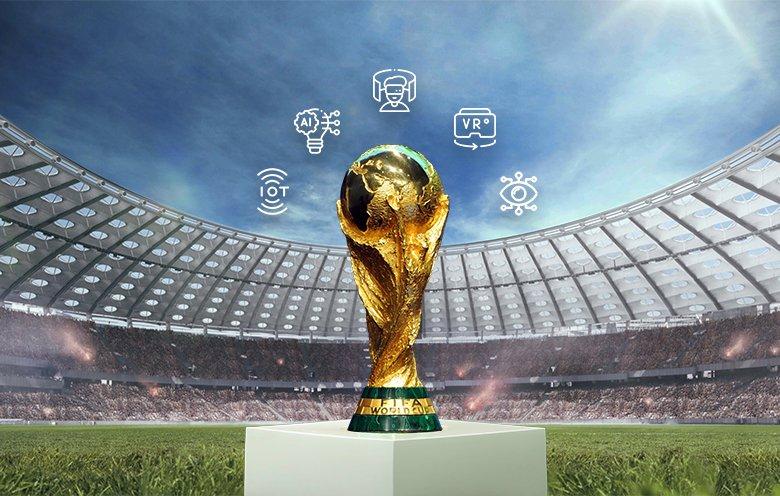As teh dust settled on the FIFA World Cup 2022, which concluded in December in Qatar, the echoes of cheers and celebrations lingered throughout the Arabian Peninsula. this tournament marked a historic milestone, not only as the first World Cup held in the Middle East but also as a meaningful moment for the small yet aspiring nation of Qatar. Beyond the thrilling matches and unexpected victories, the event has spurred a transformative wave of economic, cultural, and infrastructural changes that are poised to shape Qatar’s future for years to come. this article delves into the lasting impacts of the World Cup, exploring how Qatar is leveraging its global spotlight to enhance its international standing, diversify its economy, and foster a cultural legacy that extends far beyond the stadiums.As the world shifts its gaze from the thrilling tournament to qatar’s post-World Cup landscape, it becomes crucial to examine the implications of this historic event for a nation navigating the complexities of modernity and tradition.
Table of Contents
- Economic Transformation in Qatar Post World Cup
- Sustainable Development Goals and their Implementation
- Cultural Diplomacy: Qatars global Image Enhancement
- Sports Infrastructure Legacy: Opportunities for future Events
- Key Takeaways
Economic Transformation in Qatar Post World cup
The FIFA World Cup 2022 has catalyzed a wave of economic transformation in Qatar, propelling the nation into a new era of development. The significant influx of global attention and tourism during the event has accelerated investments across various sectors, notably in infrastructure, hospitality, and entertainment. As a result, Qatar is increasingly positioned as a leading destination for international conferences and sports events. The government aims to leverage the infrastructure developed for the tournament, such as stadiums and transportation networks, to support future economic endeavors, ensuring that the momentum of growth continues well into the next decade.
Furthermore, this transformation is underpinned by a commitment to sustainable development. Qatar’s Vision 2030 incorporates initiatives aimed at diversifying the economy beyond oil and gas dependency. This strategic shift includes designated investments in technology, education, and renewable energy, fostering an surroundings ripe for innovation. As part of this effort,the government is also initiating public projects,such as green spaces and smart city developments,thereby enhancing the quality of life for both residents and visitors. Local enterprises are expected to thrive in this new ecosystem, wiht broad implications for job creation and economic stability.
| Sector | Post-World Cup Initiatives |
|---|---|
| Infrastructure | Upgrade and maintain transport networks and stadiums |
| Tourism | Promote Qatar as a year-round destination |
| Technology | Invest in tech startups and innovation hubs |
| Renewable Energy | Develop solar and wind energy projects |
Sustainable Development Goals and their Implementation
The FIFA World Cup 2022 held in Qatar not only showcased a impressive event but also served as a catalyst for the nation to advance its commitment towards the global sustainable Development Goals (SDGs). The tournament prompted significant infrastructural development, which has been strategically aligned with the goals of sustainability, urban development, and economic diversification. Various initiatives have emerged,focusing on sustainable construction,smart technologies,and community engagement to ensure that the benefits extend beyond the event itself. The design and implementation of new venues were undertaken with an emphasis on energy efficiency and environmental protection, setting standards for future mega-events.
Furthermore, the legacy of the World Cup aligns with Qatar’s vision for 2030, emphasizing education and employment as key components of sustainable growth. Efforts to foster local talent and enhance job creation have taken center stage, aiming to empower the community and promote a diversified economy. Initiatives such as green energy projects, waste reduction programs, and cultural tourism have been launched, echoing the principles of the SDGs.With a robust framework for monitoring progress, Qatar seeks to ensure that the spirit of sustainability infused within this global event endures, propelling the nation towards a more resilient future.
Cultural Diplomacy: qatars Global Image Enhancement
The FIFA World Cup 2022 served as a pivotal instrument for Qatar to elevate its global standing, focusing on the principle of cultural diplomacy.By embracing the world’s greatest sports event, Qatar showcased its rich cultural heritage and modern advancements to a diverse international audience. This was not merely a sporting event; it was a strategic move to redefine perceptions and position Qatar as a major player on the cultural and political landscapes. The tournament facilitated numerous opportunities for Qatari citizens to engage with global visitors, fostering cultural exchange and dialog through various events and initiatives.
In the aftermath of the World Cup,the spotlight on Qatar remains remarkably pronounced. The influx of international media attention during the tournament has paved the way for ongoing cultural outreach endeavors. To sustain this momentum, Qatar is investing in various sectors, including the arts, education, and tourism, to create a vibrant cultural ecosystem that reflects its values and aspirations. Key initiatives include:
- Support for local artists and cultural institutions
- Promotion of past sites and museums
- Hosting international cultural festivals and exhibitions
| Impact Area | Initiatives undertaken |
|---|---|
| Sports | Investment in sports infrastructure and events |
| Tourism | Development of hospitality services and attractions |
| cultural Exchange | Partnerships with cultural institutions worldwide |
Sports Infrastructure Legacy: Opportunities for Future Events
The FIFA World Cup 2022 in Qatar has laid the groundwork for a robust sports infrastructure that promises to benefit future sporting events considerably. With an investment exceeding $200 billion, Qatar has not only constructed state-of-the-art stadiums but has also developed complete transportation systems, training facilities, and hospitality services. This forward-thinking approach will enhance Qatar’s ability to host a wide range of international competitions, establishing the nation as a prime destination for both athletes and fans. The legacy of these infrastructural improvements opens the door for future events, including:
- Continued Global Sporting Events: Opportunities for various international championships.
- Regional Tournaments: Attracting Middle Eastern nations to collaborate on hosting.
- Youth and Developmental sports Programs: Encouraging grassroots initiatives to train future athletes.
The enhanced sports facilities are not just about the immediate impact of the World Cup, but also about fostering a culture of sports within the region.The new infrastructure enables local institutions to facilitate training programs, sports education, and community events, ultimately leading to an uplift in national and regional sports participation. To further illustrate this potential, the following table summarizes the transformative impact of the World Cup infrastructure on Qatar’s sports landscape:
| Facility Type | Potential Use | Expected Benefits |
|---|---|---|
| stadiums | International matches, concerts, exhibitions | Boost tourism, enhance global visibility |
| Training Centers | Athlete development, coaching clinics | Elevate local talents, improve performance |
| Transport Infrastructure | Easy access to venues, shuttle services | increase efficiency, minimize travel time |
Key Takeaways
As the echoes of the FIFA World Cup 2022 linger in the stadiums and streets of Qatar, the tournament marks not just a significant milestone in the world of sports but also a pivotal turning point for the Gulf nation. The influx of international visitors, the infrastructure developments, and the global attention have set the stage for a future intertwined with tourism, sports, and cultural exchange. While the immediate impacts are evident, the long-term effects of hosting such a prestigious event will unfold in the coming years, shaping Qatar’s identity on the world stage.
In the face of challenges that arose during planning and execution, Qatar’s prosperous hosting of the World Cup serves as a testament to its resilience and ambition. As the nation continues to navigate the complex landscape of post-tournament transitions, the lessons learned and the legacies established will undoubtedly inform its path forward. As Qatar forges ahead, the world will be watching to see how it capitalizes on this unique opportunity, balancing the aspirations of its people with its growing role as a hub for global events and cultural dialogue. The FIFA World Cup 2022 may have concluded,but its impact will resonate for generations to come,redefining what it means to be a player in the international arena.





